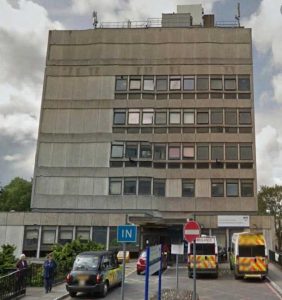If you’re thinking about having laser eye surgery, the question of safety is probably something you’ve already considered a great deal
The fact is, laser eye surgery – also known as refractive surgery or vision correction – is one of the most commonly performed private procedures carried out today. Like any form of medical procedure, it carries risks, yet in comparison to other types of procedure the risk of potential problems developing are relatively low. Even the alternatives, such as wearing contact lenses, carry their own element of risk.
Today in the UK, there are around 15,000 procedures carried out every year. It’s not available on the NHS, and most people book into a private clinic, like ours. Globally, approximately 35 million people around the world have benefitted from laser eye surgery.
How does laser eye surgery work?
Laser eye surgery can treat long or short sightedness, and astigmatism. This means that you can stop wearing glasses or contact lenses, and enjoy the same freedom as someone who has had perfect vision their entire lives.
An extremely precise laser is used to reshape your cornea at the front of your eye, and as a result helps you see better. There are several types of laser eye surgery, the most common being LASIK or LASEK and the surgery is generally pain free, although with LASEK some people experience a little discomfort as the eye heals following the procedure.
What are the risks?
Like any other type of medical procedure, there are risks involved and it’s our job to make sure you know exactly what to expect.
The most common complications, include:
- Dry eyes. Following surgery, you might notice your eyes feel drier than normal for a couple of weeks or months afterwards. If this happens eye drops can help with dryness or a gritty feeling in your eye.
- Red eyes.It’s fairly common to have some visible red marks on the white of your eye following the procedure. These will disappear after a couple of days.
- Glare or less than 20/20 vision.In this case you’d have a second procedure to correct your vision further, or a ‘top up’, which is included in the original price we quote you.
- Eye infection.This is one of the more serious risks, and if left untreated can result in significant problems with your eyesight. We’ll let you know what to look out for after your treatment and the appropriate steps to take if you suspect you have an eye infection.
One of the questions we frequently get asked is – can I go blind from laser eye surgery? Around the world there have been cases of people developing complications following surgery, leading to loss of eyesight. However, of the 20,000 procedures our surgeons have carried out to date, no one has gone blind. If you follow your surgeon’s instructions and choose the best quality lasers, you’ll be in safe hands. Think about how important aftercare is following any type of operation – good aftercare is an essential part of a successful recovery.
How can I avoid any potential complications?
To make sure your laser eye surgery is a positive and life-changing experience, there are a number of things you should take into account to make sure everything goes smoothly and you get the results you want.
First of all, use a reputable surgeon. Your surgeon should be able to provide testimonials from past patients and also evidence of their qualifications and certifications from both the General Medical Council and the Royal College of Ophthalmologists. When you meet your surgeon, they should take time to answer all your questions and alleviate any concerns you have well in advance of your procedure.
It’s also essential to choose a high quality clinic. Look for up to date lasers, advanced technology. Don’t simply go with the cheapest option, because you get what you pay for and laser eye surgery should be a once in a lifetime procedure. The cost of your treatment should be clear from the outset. If a clinic is quick to offer knock-down prices and discounts, ask yourself if they really have your eye health as their number one priority. Find out if follow up appointments are included in the price and what kind of aftercare you can expect.
One of the most important things you can do to avoid complications is to make sure you follow pre and post surgery advice given by your surgeon and their team of medical staff.
At our consultation we’ll check that laser eye surgery is right for you. Everyone is different, so what suits one person’s eyes may not suit another. If we think it would be safer and that you’d get better results from a different procedure, we may recommend lens surgery instead. We’ll take into account your age, health, eye health, prescription and lifestyle. After a detailed eye examination we can give you your options.
If you decide to have surgery, we’ll ask you to sign a consent form to show you’re fully aware of any potential issues that could arise. You should follow aftercare instructions to the letter, and give yourself some recovery time by booking some time off work. Also make sure you follow our advice about what activities to avoid while you’re recovering – no contact sports until we say it’s ok!
Generally-speaking, laser eye surgery is a safe and effective procedure for anyone who wants freedom from glasses or contact lenses. Most of the time you’ll experience minimal discomfort and you’ll be able to see better even immediately following treatment. It’s important to choose a laser eye surgeon who can talk through your worries about the procedure and offer the best advice for keeping your eyesight safe.
Speak to our experienced team today and arrange your consultationto find out more.
Read more about surprising laser eye surgery facts
Read more about the cost of laser eye surgery
Read more about our free, no-obligation diagnostic appointments


